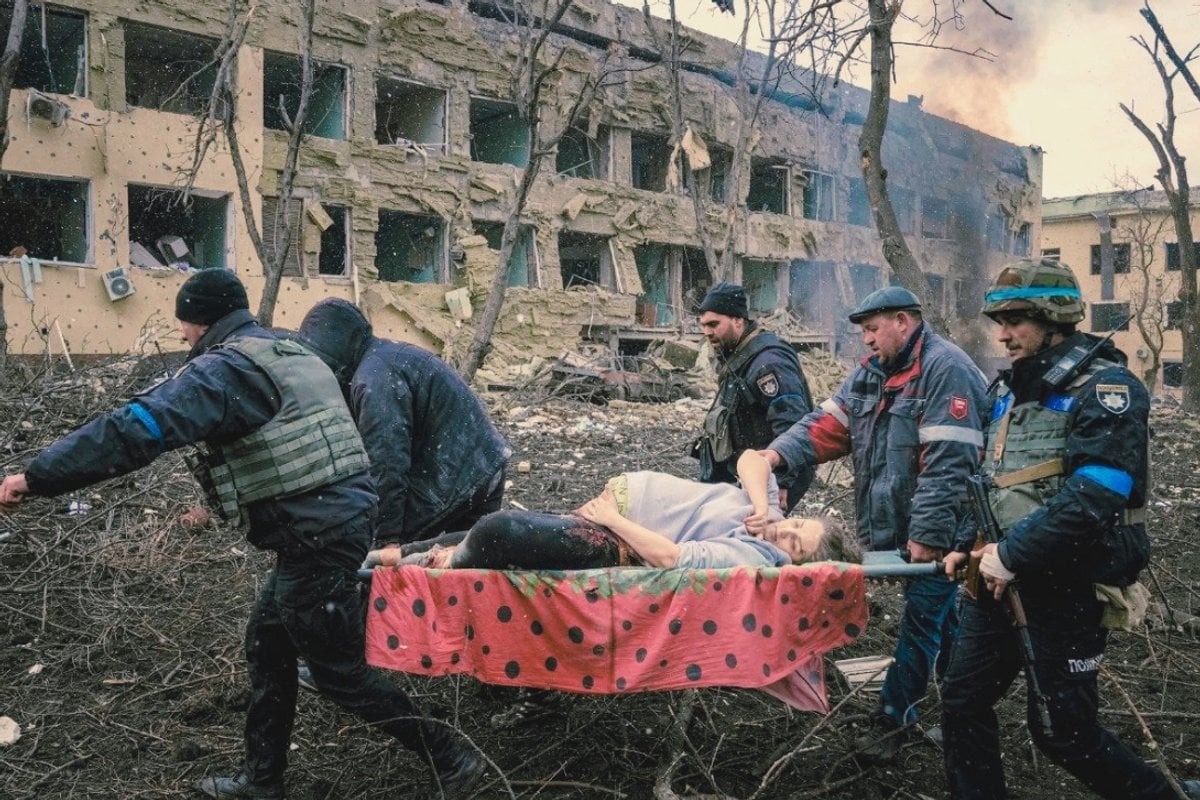
This article discusses infant loss and distressing topics that could be triggering for some readers.
The photograph will be seared into my mind forever:
A young woman lay atop a stretcher, her arm clutching at her swollen pregnant belly. Her pants are stained with blood and she stares blankly into the sky above. Four men carry her through the rubble where the Russian bombs detonated. The earth is blackened, covered with bare branches and twigs. Smoke billows in the background against the building which has now been reduced to a shell of post-it notes.
The building that was once Maternity Hospital No 3 in Mariupol, Ukraine.
The women victims of the bombed maternity hospital in Mariupol, Ukraine. Post continues after video.
"Kill me now."
They were the words the woman reportedly cried out to medics as she realised she was losing her baby. She was crashing. Her pelvis was crushed and her hip detached. Once reaching another hospital, her baby was delivered by caesarean section. Doctors then fought for over 30 minutes to resuscitate her.




























































































